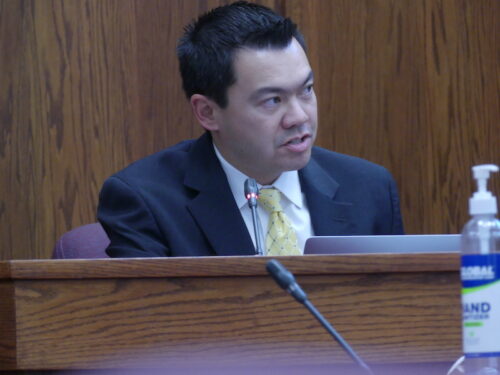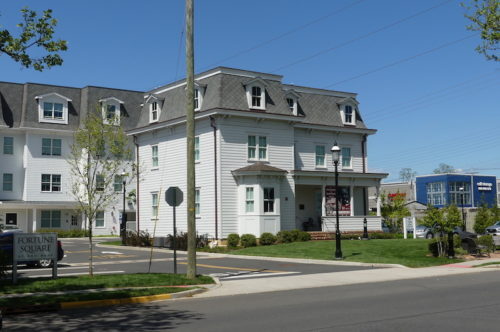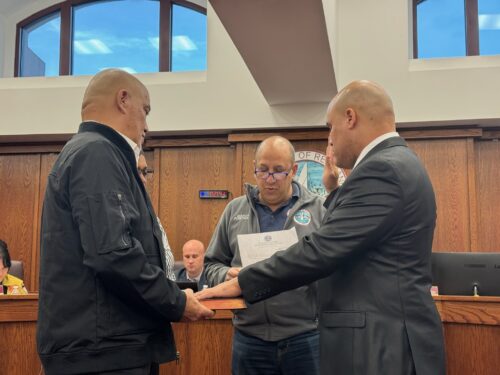
See CORRECTION below
By JOHN T. WARD


At its July 27 session, the council heard the details of a plan to implement the new council-manager form of government by revising its “code,” or ordinance book.
The walk-through was provided by Michael Collins, who served as attorney to the Charter Study Commission, which over eight months ending in July, 2022 sorted through various forms of government available under New Jersey’s Optional Municipal Charter Law, also known as the Faulkner Act.
The commission recommended the “council-manager” form, which voters approved by a wide margin in a referendum last November.
Collins, who is now a member of the borough’s “special legal counsel pool,” offered an overview of the changes brought about by adoption of the new form, which on July 1 replaced the borough form in effect since 1098.
Under the council-manager form, for example, the mayor is now an equal member of the council, with a vote on all matters, rather than serving only as a tiebreaker, as in the past.
In addition, the mayor no longer holds the authority to make certain appointments with the advice and consent of the council, Collins said.
“There’s no such nominating power, because in the new form, appointments will be done by the full governing body,” he said. The mayor also no longer can issue a veto of a measure, “because the mayor has a vote on the actual ordinance,” Collins said.
The council, which previously served as both the legislative and executive arms of the government, is now legislative only, with state law giving the municipal manager the authority to make all hiring decisions, he said.
“The governing body will hire the manager. It also hires the clerk,” Collins said. “But every other appointee is hired by the manager.” Among the benefits of that structure, he said, is “if the DPW needs to hire someone, you don’t need to wait two weeks until the next [council] meeting. The manager has that authority, so there are some efficiencies that can be realized.”
“Now, your entire executive power is vested in the person you select” for the position, Collins said. The manager is subject to removal by a simple majority of four votes, “if you don’t feel the manager is carrying out your will or not living up to expectations,” he said. “There’s no cause required.”
At present, police Chief Darren McConnell holds the post of administrator on an “interim” basis, a role he’s had since May, 2021. McConnell is set to retire as chief this month, and with that will have to give up his administrative post as well. Mayor Billy Portman said the council will announce details of its planned search for a new town manager at its next regular meeting, scheduled for Thursday at 6:30 p.m. [CORRECTED DATE]
In one of the more controversial breaks from tradition under Red Bank’s use of the “fungible” borough form of government, “it is not permissible for council members to be appointed to oversee certain departments,” Collins said. The aim, he said, is to “prevent micromanagement and to ensure that any decision-making is done out of respect to the governing body.”
The task ahead, Collins said, is to “get the code updated,” via an overhaul ordinance within 90 days to reflect the new organization, the duties of department heads, and procedures related to the new staggered, nonpartisan elections.
“Eighty percent of it is probably going to be really boring, simple stuff,” Collins told the council. Beyond that, he said, the council can use the opportunity to structure the government, specify the duties of employees.
“You can use the ordinances to provide guidance to your managers so they’re aware of how you want things established,” he said. “I think that’s going to be a new dynamic for the borough, since we’re operating under this new form.”
Under state law, the process must be completed by October 1, and will take effect 90 days after adoption, Collins said. He said he expects that “before Thanksgiving, we’ll have everything new on the books.”
If you value the news coverage provided by redbankgreen, please become a financial supporter. Click here to set your own level of monthly or annual contribution.





















